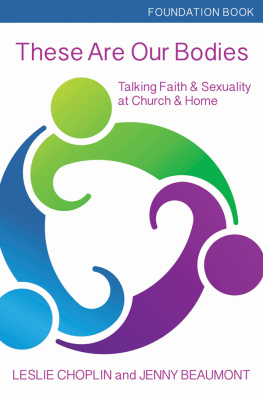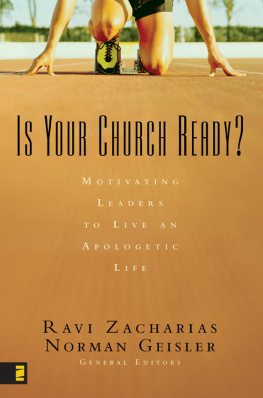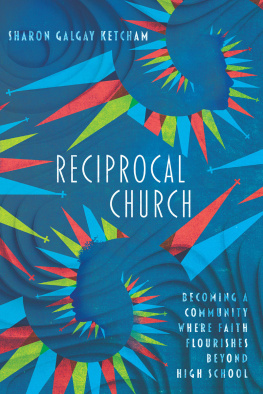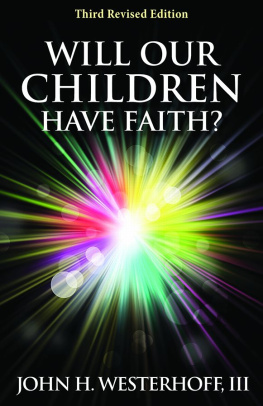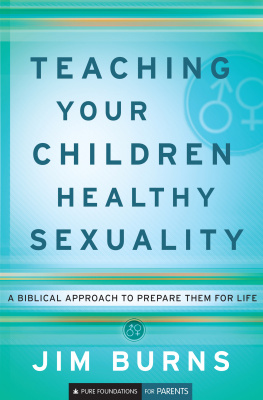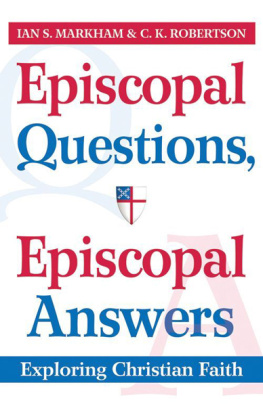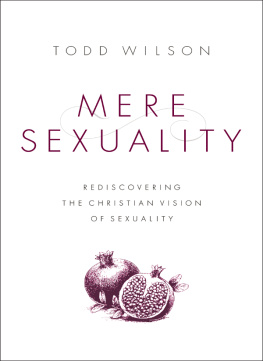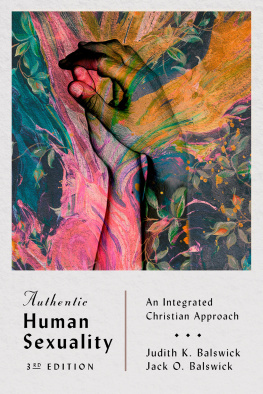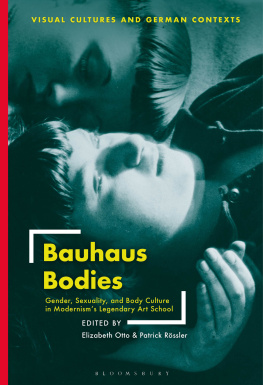T hank you to my cowriter Jenny and editor Sharon Pearson for your tireless support, cheerleading, and assistance in writing and editing. Thank you for continuing to push me to do more and to be better. You have taught me so much about writing, faith, and friendship. I am so glad to have partnered with you and developed wonderful friendships during this process.
Thank you to my mentor Henry for your endless support from my masters program to professional church education to finding a voice as a Doctor of Educational Ministry. I would not have been able to do this project without your guidance.
To Hanley, my brother and conversation partner, thank you for your deep, meaningful insights that shaped much of my writing. I greatly appreciate the time, learning, and pictures of yaks while yakking.
To Loren, for your patience in living with my book mess and being unendingly supportive by listening and reading often.
Last, to my family for believing in me, unwaveringly, and for taking such a large interest in this work.
Leslie Choplin
When I reflect on the origins of books about sexuality and faith for The Episcopal Church, I am humbled by the witness and teaching of those who have done work in this area for decades. I am grateful for both their wisdom and legacy. This book grows from the fount of their gifts and discipleship.
Writing a book is a journey and this journey has been shared with Leslie Choplin, who brought a sense of adventure and expertise to our work, and Sharon Pearson, an editor of the first order. Thank you.
For the call to teaching and learning about sexuality, I am grateful to Joann Stratton Tate. For the gift of a sounding board, example, inspiration, and friendship, I am in debt to Betsy Zarzour and Stacy Holley, who share a passion for this work.
If our closest relationships are the incubators and green houses for the Christian life, then my family has been the best spiritual directors. I am profoundly grateful to Katherine, Jonathan, Ben, and Michael, who by their steadfast love have given me the best lessons of all.
Jenny Beaumont
Bass, Dorothy C. Practicing Our Faith: A Way of Life for a SearchingPeople. San Francisco: John Wiley & Sons, 1997.
Bell, Rob. Sex God: Exploring the Endless Connections BetweenSexuality and Spirituality. Grand Rapids: Zondervan, 2007.
Berman, Laura. Talking to Your Kids about Sex: Turning The Talk into a Conversation for Life. New York: DK, 2009.
Clark, Chap. Hurt 2.0: Inside the World of Todays Teenagers . Grand Rapids: Baker Academic, 2011.
Copeland, Mychal and Dvorah Rose, editors. Struggling inGood Faith: LGBTQI Inclusion from 13 American Religious Perspectives. Woodstock, VT: Skylight Paths Publishing, 2016.
Douglas, Kelly Brown. Whats Faith Got to Do with It? Black Bodies/Christian Souls. Maryknoll, NY: Orbis Books, 2005.
Dykstra, Robert. Losers , Loners, and Rebels: The Spiritual Struggles of Boys. Louisville: Westminster John Knox Press, 2007.
____. The Faith and Friendship of Teenage Boys. Westminster John Knox Press, 2012.
Ellison, Marvin M. Making Love Just: Sexual Ethics for PerplexingTimes. Minneapolis, MN: Fortress Press, 2012.
Ellison, Marvin M. and Kelly Brown Douglas, editors. Sexuality and the Sacred: Sources for Theological Reflection. Louisville: Westminster John Knox Press, 2010.
Farley, Margaret. Just Love: A Framework for Christian SexualEthics. New York: Continuum, 2006.
Fowler, James and Mary Lynne Dell. Stages of Faithfrom Infancy through Adolescence: Reflections on Three Decades of FaithDevelopment Theory. Thousand Oaks, CA: Sage Publications, 2006.
Hall, Gary R. and Ruth A. Meyers, editors. Christian Holiness &Human Sexuality: A Study Guide for Episcopalians. New York: Church Publishing, 2011.
Harris, Robie. Its Not the Stork! A Book About Girls, Boys, Babies,Bodies, Families and Friends (The Family Library). Candlewick, 2008.
____. Its Perfectly Normal: Changing Bodies, Growing Up, Sex, andSexual Health (The Family Library). Candlewick, 2014.
____. Its So Amazing! A Book about Eggs, Sperm, Birth, Babies, and Families (The Family Library). Candlewick, 2014.
Johnson, Jay Emerson. Peculiar Faith: Queer Theology for ChristianWitness. New York: Seabury, 2014.
Jung, Patricia Beattie and Stephens, Darryl W., eds. ProfessionalSexual Ethics: A Holistic Ministry Approach. Minneapolis, MN: Fortress Press, 2013.
Kimball, Lisa. Human Sexuality: Teenagers and the Church. Resource Book for Ministries with Youth & Young Adults in The Episcopal Church, edited by Sheryl A. Kujawa and Lois Sibley. New York: The Domestic and Foreign Missionary Society, 1995.
Kitch, Anne E. Taking the Plunge: Baptism and Parenting. New York: Morehouse, 2006.
Liturgical Resources 1: I Will Bless You and You Will Be a Blessing, revised and expanded. New York: Church Publishing, 2015.
Mercer, Joyce Ann. GirlTalk/GodTalk: Why Faith Matters to Teenage Girlsand Their Parents. San Francisco: Jossey-Bass, 2008.
Nelson, James B. Embodiment: An Approach to Sexuality andChristian Theology. Minneapolis: Augsburg, 1978.
Nikkah, John. Our Boys Speak: Adolescent Boys Write about TheirInner Lives. New York: St. Martins Press, 2000.
Noddings, Nel. The Aims of Education, in The CurriculumStudies Reader: Second Edition, edited by David J. Flinders and Stephen J. Thornton. New York: RoutledgeFalmer, 2004.
Ott, Kate. Sex + Faith: Talking with Your Child from Birth toAdolescence. Louisville, KY: Westminster John Knox Press, 2013.
Palmer, Parker J. Let Your Life Speak: Listening for the Voice ofVocation. San Francisco: Jossey-Bass, 1999.
Paulsell, Stephanie. Honoring the Body: Meditations on a ChristianPractice. San Francisco: Jossey-Bass, 2002.
Rohr, Richard. Falling Upward: A Spirituality for the Two Halves ofLife. San Francisco: Jossey-Bass, 2011.
Sedgwick, Timothy F. The Christian Moral Life: Practices of Piety. New York: Seabury, 2008.
____. Sex, Moral Teaching, & the Unity of the Church: A Study ofThe Episcopal Church. New York: Morehouse, 2014.
Shandler, Sara. Ophelia Speaks: Adolescent Girls Write About TheirSearch for Self. New York: HarperPerennial, 1999.
Smith, Christian and Melinda Lundquist Denton. Soul Searching:The Religious and Spiritual Lives of American Teenagers. New York: Oxford University Press, 2005.
Valenti, Jessica. The Purity Myth: How Americas Obsession withVirginity Is Hurting American Young Women. Berkeley, CA: Seal Press, 2009.
Virginia Theological Seminary. Relationships: A Guide for Leadership Teams, Episcopal Curriculum for Youth. Alexandria, VA: Virginia Theological Seminary, 1997. No longer in publication, but available for download: www.vts.edu/ftpimages/95/download/Relationships%20Guide-Year%201.pdf.
Williams, Rowan D. The Bodys Grace. In Theology and Sexuality:Classic and Contemporary Readings, edited by Eugene F. Rogers, Jr. New Jersey: Blackwell Publishing, 2002.
A s children of God we are born into the world beloved by God. We are filled with hope and promise of the future. We come into the world inherently worthy of love and aweawe at the mystery of our holiness in who and what we are.
As we develop, our experience and our sense of self are shaped and molded by those around us. This includes our sexuality. It is inherently part of who we are; living as a sexual being is unavoidable and unavoidably complex. Sexuality is gooda gift from God since the beginning.

